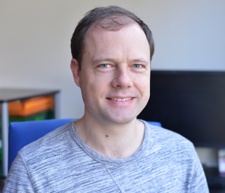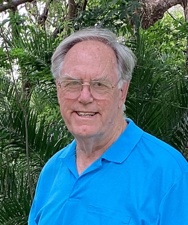Teaching Digital Technologies in Australian schools with Python and the Kookaberry
Part of the Education specialist track
There are around 6,200 primary schools around Australia, and the curriculum has a requirement to teach Digital Technologies, which includes a coding portion. There are many challenges here, not least which is enabling the approximately 150,000 primary school teachers with the skills and resources to teach programming to young students. The AustSTEM foundation was set up to assist in this area, and developed a MicroPython based learning platform, which consists of a pocket-sized computing device that integrates with a web-based coding and teaching environment. The teaching material has many hands-on activities, with connections to nature and science. In this talk we will discuss this teaching platform, how it can help students transition from block-based programming to textual coding, and show some of the successes we have had so far in Australian classrooms.
The non-for-profit AustSTEM foundation provides access and assistance to STEM learning across Australian schools with emphasis on year 5 through to year 7. AustSTEM has developed the Kookaberry learning platform which includes a small microcontroller-based board with a screen, buttons, wireless connectivity, and facility to connect many different kinds of sensors. A web-based coding and teaching environment integrates with the Kookaberry hardware and allows programming in both the visual Blockly language and Python, with very easy transition between the two. Teachers also have the option to use a Raspberry Pi Pico with add-on hardware within this learning platform, making the platform more accessible and flexible.
Most programming in primary school is based on visual block-based languages like Scratch. The Kookaberry leverages Blockly to provide a way for students to program physical hardware (a microcontroller running MicroPython) and interact with the environment through sensors such as accelerometers, pressure and moisture sensors and light sensors, and interact using LEDs and motors. They also learn about data logging and visualising results of experiments using plots. This gives students a very hands-on approach to learning to program, which helps to cement the learning objectives in the curriculum in real-world applications.
Following on from learning to program in Blockly, the Kookaberry platform allows easy transition to program in Python: the Blocks actually convert directly to Python snippets and so the students can gradually adapt their existing visual programming skills to textual coding in Python.
A big part of teaching students is first of all training teachers, and we will discuss some challenges in this area, and how Kookaberry gives the teachers are given a wide range of teaching tools so they can adapt the platform to their style. We will show some lesson plans, which aim to attract and engage students of all ages and abilities.
As a bonus, the Kookaberry web-app is itself written in Python, and we will describe some technical details of how it all works.
There will be lots of pictures of kids in action!

Damien was born in Melbourne, Australia, and has been programming and playing with electronic circuits since primary school. He completed a Bachelor of Engineering and Bachelor of Science at the University of Melbourne, and then went on to complete a PhD in theoretical physics.
During his studies he participated in the international Robocup competition, programming autonomous robots to play soccer. He wrote embedded software for scripted behavioural control and motion, as well as building parts of the hardware. He has since continued in this area, building robots, a CNC machine, and writing embedded software for many microcontrollers.
He worked professionally as a theoretical physicist for 6 years, on various topics including cosmology and the Higgs boson. He then went on to develop MicroPython and ran two very successful Kickstarter campaigns around this microcontroller language. He now works full- time maintaining the MicroPython code-base and ecosystem.

Julian has a strong background in operating technology companies in the electronics, energy, telecommunications and software industries with an emphasis on engineering, project, financial and corporate management Julian was born in the UK where he completed his Bsc (hon) degree in Electrical Engineering and migrated to Australia some 30 plus years ago. He has run and operated his own companies in control systems, software and telecommunications. He is a Fellow of Engineers Australia and of the Institute of Technology (UK) Julian is a passionate engineer and mentor and has hired over 200 engineering graduates during his career, many of which have gone on to high profile careers in Australia and around the world. He has an active interest in promoting engineering in education and as a profession. Julian currently chairs the AustSTEM Foundation which is a charity that promotes STEM education to students across Australia.